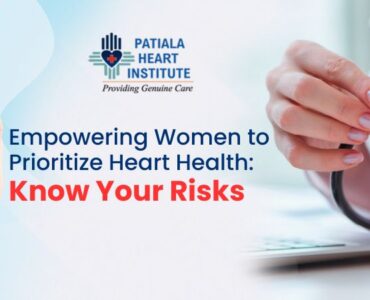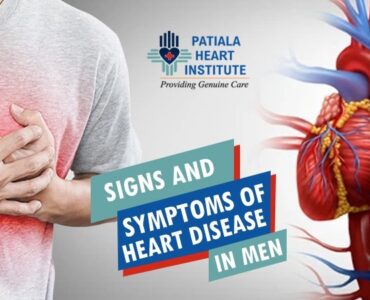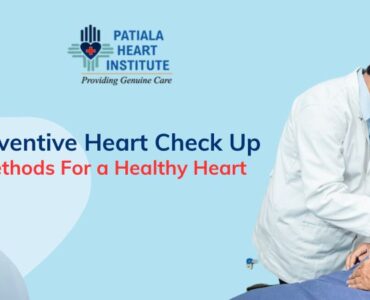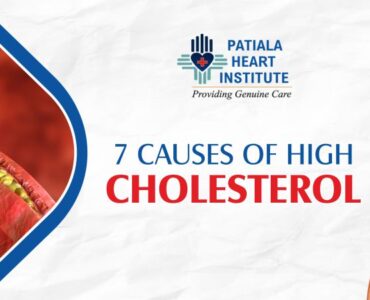Hypertension, commonly known as high blood pressure, is a pervasive health issue affecting millions worldwide. Often referres to as the “silent killer,” hypertension can quietly damage the arteries and vital organs, setting the stage for severe complications, including heart attacks.
In this blog, we will explore the intricate relationship between hypertension and its alarming progression to heart attacks.
Understanding Hypertension
Hypertension, also known as high blood pressure, is a medical condition characterized by elevated blood pressure in the arteries. Blood pressure is the force exerted by the blood against the walls of the arteries as the heart pumps it around the body. It is typically measured in millimeters of mercury (mmHg) and express as two values: systolic pressure over diastolic pressure.
- Normal Blood Pressure: The normal blood pressure reading is 120/80 mm/Hg.
- Elevated Blood Pressure: A systolic blood pressure ranging from 120 to 129 mm/Hg and a diastolic blood pressure of 80 mm/Hg or lower is considered as elevated blood pressure.
- Hypertension Stage 1: A systolic blood pressure ranging from 130 to 139 mm/Hg and diastolic blood pressure between 80-89 mm/Hg.
- Hypertension Stage 2: A systolic blood pressure of 140mm/Hg or higher and diastolic blood pressure of 90 mm/Hg or higher is considered hypertension stage 2.
Hypertension is a significant health concern because it can lead to various complications, such as heart disease, stroke, kidney problems, and other cardiovascular issues.
Causes and Risk Factors
Hypertension can stem from various factors, including genetics, lifestyle choices, and other health conditions. While a family history of high blood pressure can increase the likelihood of developing it, lifestyle choices such as a high-sodium diet, sedentary behavior, and excessive alcohol consumption can also contribute. Additionally, factors like obesity, diabetes, and chronic kidney disease can further elevate the risk.
Mechanics of Hypertension
To understand how hypertension escalates to heart attacks, it’s important to understand the mechanics of high blood pressure. Blood pressure is the force exerted by the blood against the walls of the arteries. Persistent high blood pressure puts strain on the arteries, causing them to narrow and thicken. This, in turn, hampers blood flow and oxygen delivery to vital organs, setting the stage for long-term damage.
Hypertension Symptoms
Hypertension, often termed the “silent killer,” typically progresses without overt symptoms, making regular monitoring paramount. However, in some cases, individuals may experience warning signs. These may include persistent headaches, shortness of breath, nosebleeds, and dizziness. It’s crucial to note that these symptoms can often be attributed to various factors, underscoring the importance of regular blood pressure checks.
While hypertension may often progress silently, staying attuned to subtle signals can prompt early detection, allowing for timely intervention and the prevention of potential complications associated with sustained high blood pressure.
Progression of Hypertension to Heart Attacks
Chronic Effects on Arteries
One of the primary consequences of hypertension is the development of atherosclerosis. This condition involves the accumulation of cholesterol and other substances, forming plaque within the arteries. Over time, these plaques can rupture, leading to blood clots that may block the arteries. This chronic inflammation and damage to the arterial walls significantly increase the risk of heart attacks.
Furthermore, hypertension contributes to the weakening of arterial walls, increasing the risk of aneurysms—abnormal bulges that, if ruptured, can have life-threatening consequences. Recognizing and addressing these chronic effects underscore the importance of hypertension management in preserving vascular health and preventing severe cardiovascular complications.
Hypertrophy
Hypertrophy is the heart’s adaptive response to the increase demand for pumping blood. While initially beneficial, long-term hypertrophy can lead to a stiff and less functional heart, impairing its ability to pump blood effectively.
Strain on the Cardiovascular System
The heart, in response to hypertension, needs to work harder to pump blood against increase resistance. The continuous strain on the cardiovascular system can result in structural changes that compromise its integrity. Weakened blood vessels, combines with the presence of atherosclerotic plaques, create a precarious environment that heightens the risk of cardiovascular events, particularly heart attacks.
Formation of Blood Clots
Hypertension not only damages arteries but also promotes the formation of blood clots. The turbulent blood flow caused by constricted and stiffened arteries encourages clot formation. These blood clots can obstruct coronary arteries, leading to myocardial infarction, commonly known as a heart attack. The severity of the clot determines the extent of damage to the heart muscle.
Prevention and Management
Lifestyle Changes
Adopting a Heart-Healthy Diet
One of the primary pillars of managing hypertension involves adopting a heart-healthy diet. Focus on incorporating fruits, vegetables, whole grains, and lean proteins into your meals. Emphasize foods rich in potassium, as it helps balance sodium levels and regulate blood pressure. Limiting processed foods, saturated fats, and trans fats is crucial for overall cardiovascular health.
Regular Physical Activity
Engaging in regular physical activity is an effective way to manage hypertension. Aim for at least two hours of moderate-intensity exercise per week. Activities like brisk walking, cycling, swimming, or jogging can help improve cardiovascular fitness and contribute to maintaining healthy blood pressure levels. Consult with a healthcare professional before starting a new exercise regimen, especially if you have pre-existing health conditions.
Stress Management Techniques
Chronic stress can contribute to elevates blood pressure. Incorporating stress management techniques into your daily routine, such as mindfulness meditation, deep breathing exercises, or yoga, can have a positive impact. Finding activities that promote relaxation and mental well-being can significantly contribute to hypertension management.
Medical Interventions
In some cases, lifestyle modifications may not be sufficient, and medical interventions become necessary. Here are some common medications used in the treatment of hypertension:
Diuretics:
Diuretics, commonly known as water pills, help the body eliminate excess sodium and water, reducing blood volume and lowering blood pressure. These are often prescribe as a first-line treatment for hypertension.
Beta-Blockers:
Beta-blockers reduce heart rate and the force of contraction, thereby decreasing the workload on the heart. They are effective in controlling blood pressure and are commonly prescribed for various cardiovascular conditions.
ACE Inhibitors and ARBs:
Angiotensin-converting enzyme (ACE) inhibitors and angiotensin II receptor blockers (ARBs) work by relaxing blood vessels, making it easier for blood to flow. They are often prescribed to individuals with hypertension and can be beneficial for those with certain heart conditions.
Calcium Channel Blockers:
Calcium channel blockers prevent calcium from entering the heart muscle cells and blood vessel walls, leading to relaxed blood vessels and reduced blood pressure. They are another class of medications commonly used in hypertension management.
Regular Check-ups and Screenings
Monitoring Blood Pressure
Regular monitoring of blood pressure is essential for individuals with hypertension. Home blood pressure monitors can be useful for tracking readings between doctor visits. Understanding your blood pressure patterns helps in adjusting medications and lifestyle strategies effectively.
Early Detection of Complications
Routine check-ups with healthcare professionals allow for the early detection of complications associated with hypertension. These may include tests to assess organ function, such as kidney function tests, and screenings for conditions like diabetes that can contribute to hypertension.
Adherence to Treatment Plans
Adherence to prescribed medications and treatment plans is crucial for effective hypertension management. It is essential to take medications as directed, attend follow-up appointments, and communicate any concerns or side effects with your healthcare provider.
Conclusion
Understanding how hypertension escalates to heart attacks is crucial for raising awareness and promoting preventive measures. If left untreated, hypertension can lead to severe complications, with heart attacks being a significant concern.
By addressing the root causes of hypertension, adopting a heart-healthy lifestyle, and seeking timely medical intervention, you can mitigate the risks and safeguard your cardiovascular health.
Are you or a loved one seeking expert care for hypertension and cardiovascular health in Patiala? Look no further than Patiala Heart Institute and Multispecialty Hospital, the region’s leading hospital dedicates to heart care. Our team of experienced heart specialists in Patiala is committed to providing top-notch hypertension treatments tailor to your needs.
Schedule a consultation with our expert heart specialists today and take proactive steps towards a healthier heart.







